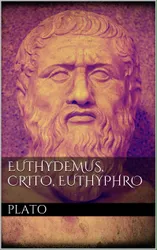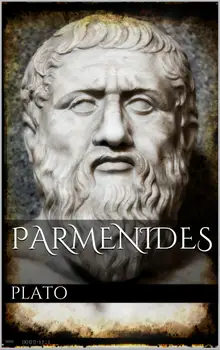The awe with which Plato regarded the character of 'the great' Parmenides has extended to the dialogue which he calls by his name. None of the writings of Plato have been more copiously illustrated, both in ancient and modern times, and in none of them have the interpreters been more at variance with one another. Nor is this surprising. For the Parmenides is more fragmentary and isolated than any other dialogue, and the design of the writer is not expressly stated. The date is uncertain; the relation to the other writings of Plato is also uncertain; the connexion between the two parts is at first sight extremely obscure; and in the latter of the two we are left in doubt as to whether Plato is speaking his own sentiments by the lips of Parmenides, and overthrowing him out of his own mouth, or whether he is propounding consequences which would have been admitted by Zeno and Parmenides themselves. The contradictions which follow from the hypotheses of the one and many have been regarded by some as transcendental mysteries; by others as a mere illustration, taken at random, of a new method.
Parmenides
Starten Sie noch heute mit diesem Buch für CHF 0
- Hol dir während der Probezeit vollen Zugriff auf alle Bücher in der App
- Keine Verpflichtungen, du kannst jederzeit kündigen
Autor*in:
Sprache:
Englisch
Format:

How to Talk About Love : An Ancient Guide for Modern Lovers
Plato Plato
audiobook
The Republic (Hero Classics)
Plato Plato
book
World Classics Library: Plato : The Republic, Charmides, Meno, Gorgias, Parmenides, Symposium, Euthyphro, Apology, Crito, Phaedo
Plato Plato
book
Euthydemus, Crito, Euthyphro
Plato Plato
book
Statesman
Plato Plato
book
Sophist
Plato Plato
book
Apology, Crito, Phaedo
Plato Plato
book
Protagoras
Plato Plato
book
The Republic
Plato Plato
book
Theaetetus
Plato Plato
book
Symposium
Plato Plato
book
